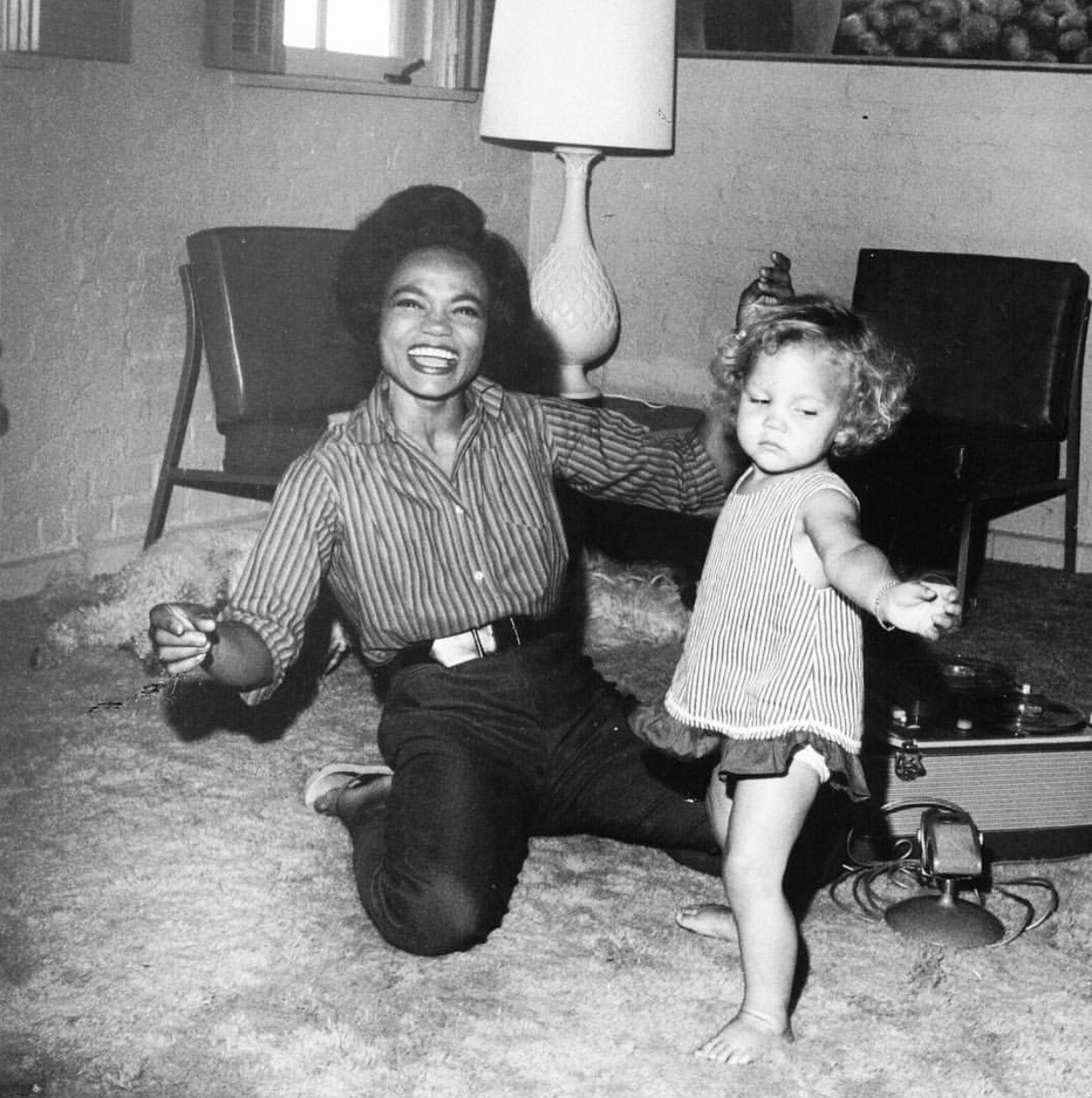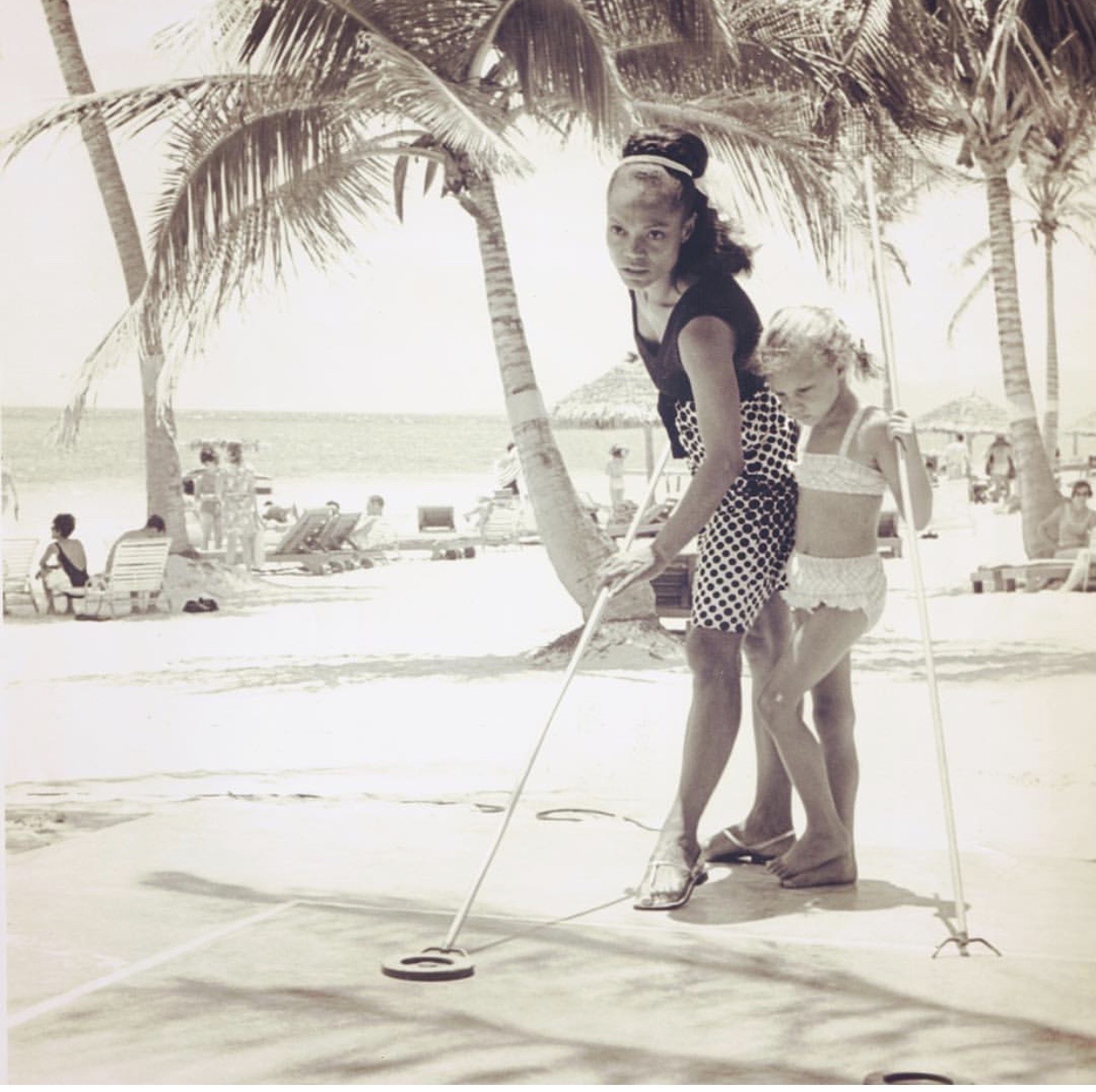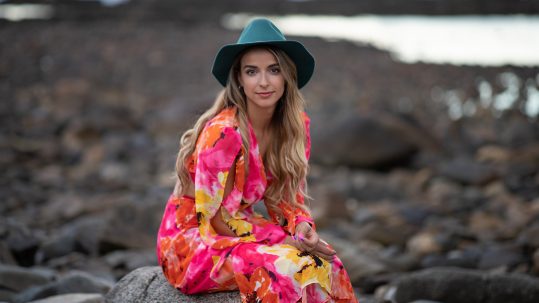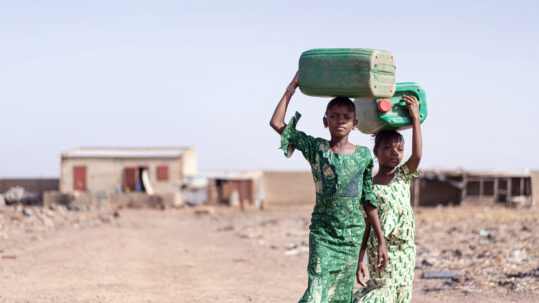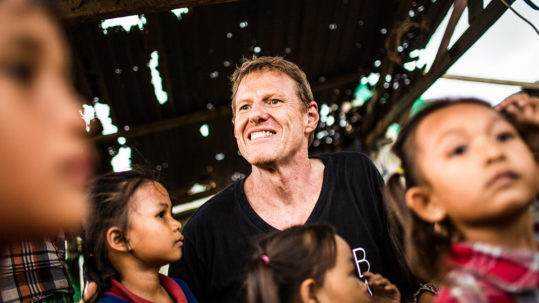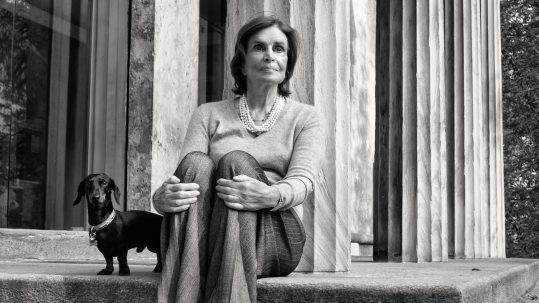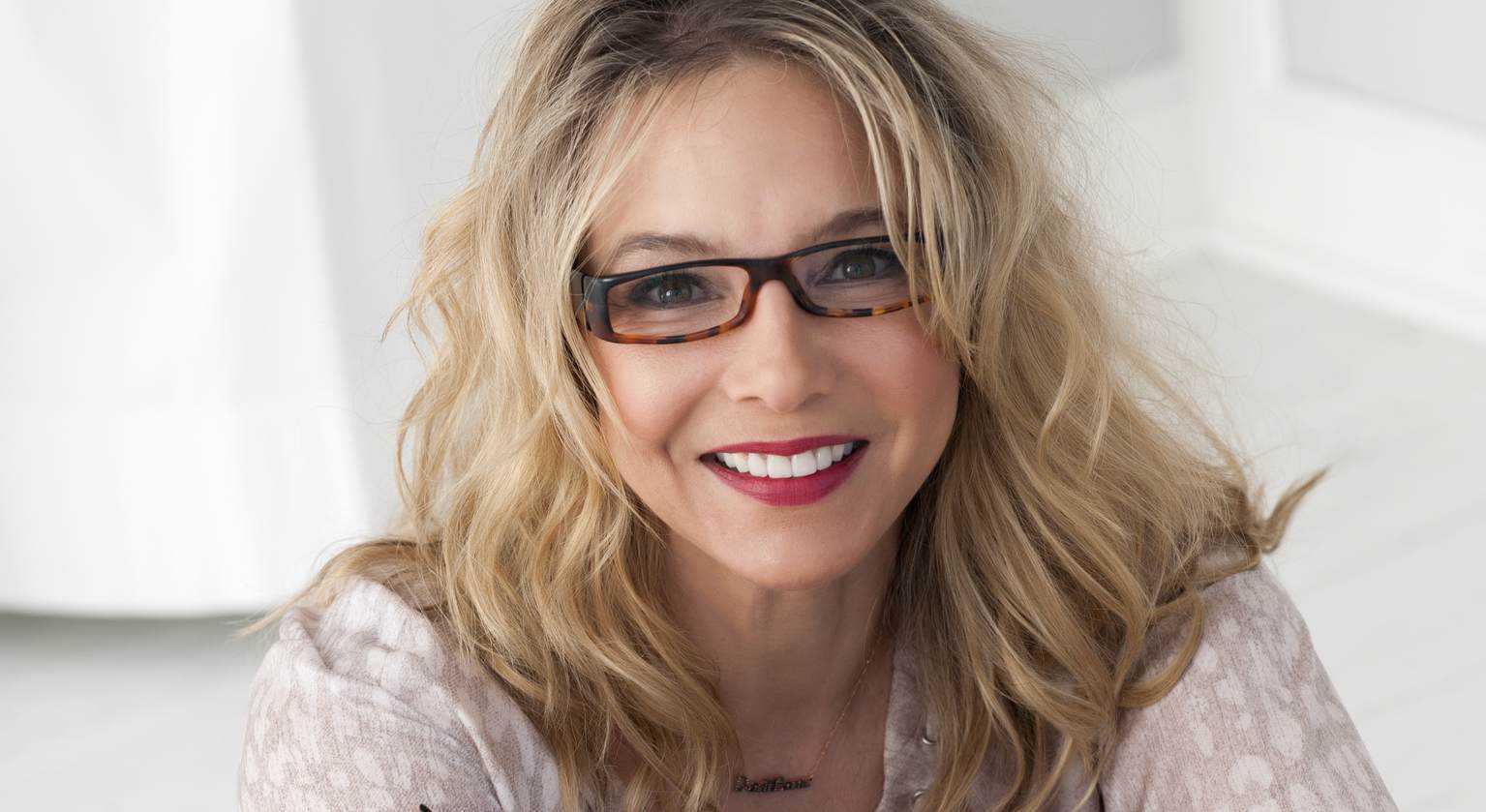
20 May Kitt Shapiro
Photo courtesy of Kitt Shapiro
KITT SHAPIRO
Throughout history, only a few women have ignited positive change and have improved others’ lives significantly. The legendary Eartha Kitt was one of these women and her legacy, lovingly maintained by her only daughter, Kitt Shapiro, is here to prove it. Stunning, friendly, and with those same beautiful large almond eyes as her mother, Kitt Shapiro is a pure delight. I had the pleasure of sitting down with her for a little chat on life, family, South Africa, and the unconditional love she shared with her mother.
By Victoria Adelaide | May 20. 2019
Victoria Adelaide: Can you tell us about your name, Kitt?
Mrs. Kitt Shapiro: It was my mother’s last name. She didn’t understand why children always got their father’s name, so she made sure I carried her name. Whether I was going to be a boy or a girl, I was going to be named Kitt.
VA: Your company, Simply Eartha, is a tribute to your legendary mother, Eartha Kitt. How did it start and what does it mean to you?
KS: Most of my life, my mother always said to me, “When I’m gone, I want you to carry on my legacy. My music, my movies, anything I’ve done in the public eye. You are the only one who knows the person that I am, and it is your job to carry that forward.” The person she was, her values, she wanted that to be known. So, after she died from colon cancer on Christmas day in 2008, I realized I had the duty to carry on her legacy. My mother had always been very much of a writer; she loved to write and to be intellectually stimulated. She would write down all those words that she would call, Kittisms—little coined phrases, some that she made up, others she probably heard and decided to use. So, I put together a little Christmas book with her Kittisms and some photographs of her and sent it to people who have been important to her in her life. They loved it and encouraged me to move forward with it in a more public manner. That’s how I started formulating these words into designs I would create, whether they were a piece of art or a poster. Then it evolved into pieces of jewelry, accessories, and so on. My mother would always say to me, “Don’t Panic! Panicking doesn’t help you see what’s going on in reality. It only prevents you from seeing what path you are supposed to take.” So I wrote it in her handwriting, on a bracelet and on a necklace, and that became my tribute.
VA: In your youth, what was one of the main lessons you learned from your mother?
KS: A significant impact my mother had was on what I eat and how we lived at home. My mother believed you should only eat healthy food from the ground; in seasons, you have to grow your food as much as you can or go to the local farmers. She didn’t believe in processed food. She lived what we call now, green living, here in the United States. Having learned those lessons about the simplicity of living life probably had the biggest impact on me.
VA: I interviewed the great Jane Elliott last year on her lifetime fight against racism. Also, while I was identifying myself as a biracial woman, she said, “You are not biracial; you are a mosaic woman, as there is only one race” and that there are simply different shades of colors. How was it for you growing up in America?
KS: My mother always felt that same way, not about me in particular but about the mosaic people of the world—we are the future. Precisely, as you said, we are all just different shades. If people were to get their DNA taken, everybody would have a multiracial combination in them. That would be one less thing people would be fighting over—that was my mother’s wish. She loved the fact that she had given birth to this “mutt.” Growing up, she said to me, “You are a walking united nation. You either fill every quota, or you break every rule.” I thought that was a fantastic way of viewing a human being; you can’t pinpoint them as far as the color of their skin because what may appear to be one race is not necessarily that race and we’re all a combination. I grew up with a mother who didn’t see color, and I didn’t see color at all until I went to school. It was a French school. There were many people from all over the world. It wasn’t like going to an American school, so I didn’t have a bad experience either. Also, even though my mother was of color, she was famous, and no matter how much prejudice a person has, they would prefer to be with somebody famous and not acknowledge that they’re colored. So, I never experienced in the United States what my mother had to go through, largely because, by the time I was born, she was already famous and we lived a completely different life than when she grew up. However, because of my appearance, I was treated differently. People who knew me treated me differently probably because I was a celebrity’s child, but if you didn’t know me and you saw the blonde hair and the light skin, you didn’t know what I might be. It wasn’t until we went to South Africa when I was 13 years old that I noticed the difference between my mother and me.
Photos courtesy of Kitt Shapiro
VA: You traveled to South Africa with your mother in 1974, when you were 13. Can you tell us what happened?
KS: I was a huge fan of ballet and one of my favorite ballet dancers at the time was Margot Fonteyn of the Royal Ballet. When we got to Cape Town, she was performing and my mother’s friend asked if I would like to accompany them to the ballet and I said yes, of course. So we walked into this fabulous opera house and all these people were whispering, “This is Eartha Kitt’s daughter.” Of course, I was thinking, “Wow, look how important I am!” I thought that was such a really cool thing. The ballet was amazing, and the next day in the newspaper it read, “Eartha Kitt’s daughter goes to ballet.” I didn’t understand what that meant. The opera house was an all-white opera house. If I had been a South-African citizen, I would have been considered colored, and I would not have been allowed there. So these people were not saying, “That’s Eartha Kitt’s daughter,” because they were Eartha Kitt’s huge fans, they were saying that as I was breaking the law. Because of my skin tone, nobody thought to stop me as I walked in. My mother was so excited; she thought that was the most wonderful thing they headlined in the newspaper—that her daughter, unbeknownst to her, had broken the rules. She was very proud of that. (laughs) The reason my mother went to South Africa to perform is that she believed artists were the true diplomats of the world, that they did not have to abide by diplomacy or political correctness, and that they could, in fact, influence change just by being present, making strives, and doing things that politicians were unable to do. So, it was important for her to go to South Africa. She insisted on performing for multiracial audiences and on being seen in certain areas of the country where she would not have been allowed if she had been South African and because she was a famous artist, she had VIP status. She was not trying to change the government, but she felt maybe she could change one person’s thinking, one little law, one little something—and that was very important to her. While we were there, we raised money for schools for black African children. When we were in Durban, there was an amazing amusement park where I had been numerous times with my tutor, and I kept saying to my mother that she had to come with me. She was working and very busy, but there was one day she was finally able to come to the amusement park with me. We went to the bumper cars and sat down. I was excited to have my mother with me. The ride was just about to start, when a gentleman who worked there walked over to us, and said to my mother, “Excuse me, Madam, are you European?” My mother answered, “No, I’m American” and he said, “No, I don’t think you understand my question. Are you colored?” She looked at her hands, and she said, “Well if you think this is colored then I guess I am colored.” He said, “I’m afraid this is a white only park, and you have to leave.” My mother stood up very quietly, without making a scene, and said “Ok.” She took my hand, and we started to leave the park. I, in a typical teenage fashion, was screaming, yelling, and telling my mother, “You have to tell him who you are, that you have VIP status and you can be here. Tell him!” She looked at me and said, “Don’t panic! Everything happens for a reason. God may not be there when you want him but he’s always on time.” So we left. The next day, there was a press conference at the hotel and the photographer said, “Oh, we would love to get the photograph on the balcony with the amusement park in the background.” My mother said, “Oh, that’s funny, I tried to go there with my daughter the other day but I was thrown out of the park.” That made headlines in the newspaper the next day that she had been thrown out. The owner of the park was so apologetic and embarrassed; he asked my mother what he could do to make it up to her. So she told him we were raising money to build a school for African children; therefore, a check would be greatly appreciated and that I would like to go back to the park with a bunch of friends so a few tickets would be nice as well. We got a check from him as a donation to build the school and he also sent some tickets. My mother put together a multiracial group of kids and we went to the amusement park.
VA: Your mother lived in Europe and it seemed she had a different experience over there?
KS: Yes, my mother, as a young dancer, had the opportunity to go to France. She lived in Paris, and she saw that it wasn’t like being in America. I think it had a massive impact on her, having grown up in the South where she was too light-skinned to be living in a black community—they referred to her as a yellow gal—and she was too dark to be accepted by the white community anywhere else in the United States. So there was this place that she didn’t belong, and there was a need in the United States for her to be labeled. To her, as long as you needed to label people according to the color of their skin or their race, you were always going to have a segregation issue and problems with the separation of people. I have a different experience because I lived in Hollywood and I lived with a celebrity. Once you reach celebrity status, it changes how some people view you. My mother might have had a different take on that. There were times when she answered the door, in our amazing home in Beverly Hills, and people thought she was the maid. I didn’t have that, so I can’t speak to having any of that experience in my life.
VA: Has your upbringing influenced the way you raise your children?
KS: The relationship I had with my mother was unique. My mother would often introduce us by saying, “I’m Eartha and this is Kitt,” as if I completed her somehow. I think, in many ways, I did complete her. I gave her the roots and the foundation that she had always yearned for and needed in so many ways. I never thought that having children of my own would ever replicate the kind of relationship that I had with my mother. My mother and I were always together. My children also had the blessing of growing up with her, being a part of her life, and traveling with her. I always remember my mother’s voice whenever I would give something to eat to my children: “Don’t forget, not processed and not this, not that.” My children would laugh at me saying, “Mom, you can’t make everything organic.” I’ll never forget that day I bought regular and organic ketchup. We sat down for dinner, I put everything on the table, and then my son stood up, picked up the ketchup bottle, and said, “This is where I draw the line. I refuse to have organic ketchup!” (laughs) It tastes different than Heinz or any of the others. I laughed because they would tolerate everything I tried. For the most part, I raised them to eat healthily, and they live their life and are very aware of the importance of food, natural, not processed and of taking care of the earth.
VA: You are also using, Simply Eartha, as a platform to fight colon cancer. Can you tell us about that?
KS: Yes, I speak a lot about the importance of caregivers and early diagnoses and testing for colon cancer, as well as all other cancers. In the United States, it’s the third largest cancer killer. My mother never had a colonoscopy, but if she had had one, her cancer would have been discovered much earlier and probably treated and beaten. I donate to the American Cancer Society and I serve on committees to raise awareness and money for research, as well as treatment for people who cannot afford their own. I advocate a healthy lifestyle, which includes thinking positively. As my mother would say, “You have to be grateful and positive every single day and appreciate everything that you have. When you are grateful and you count your blessings every day, you end up having more blessings and more things to be grateful for.”
...My mother would often introduce us by saying, “I’m Eartha and this is Kitt.”

